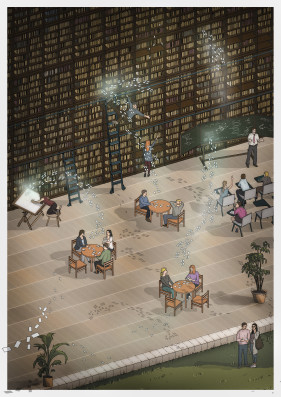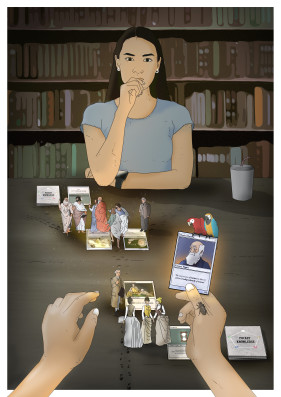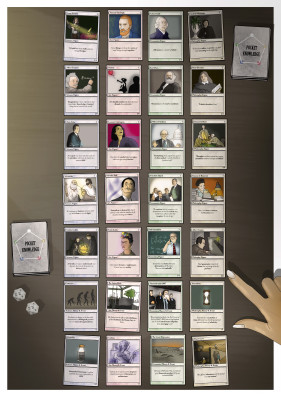Pocket Knowledge
Name: Peter Allan Klode Gustafson
Nationality: Denmark
Institution: Aarhus School of Architecture
Why can I easily remember a Pokémon, but have to dig in my memory to remember what Charles Darwin was all about?
Studies show that games enhance learning through visualisation, experimentation, and creativity of play.
Pocket knowledge is a card-gathering game, which through interactive learning and a tactile experience strive to create a self-educational community where learning becomes engaging and addictive.
The rules of the game are simple. You shuffle your deck and swap with your opponent. Each player has 20 Knowledge Points – if you reach 0 you lose. The decks consist of theory/event cards and figure cards. Theory/event cards are the energy cards you use to attack your opponent and figures are the ones you attack with. All cards are colored according to its faculty.
To access your cards you must know your deck well, each round your opponent draws one of your cards and mentions it. Then you must tell the access quote to be able to use the card. Some figures can block so you won’t lose knowledge points. This makes some games long, complex and fun – others short and painful. In the end – the better you know your cards the better chances are of winning.



